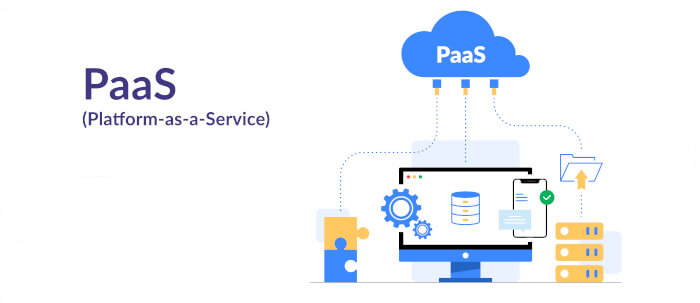OKD (previously known as OpenShift Origin) is a Platform as a Service (PaaS) computing platform as a service product from Red Hat. It is an application platform where application developers and teams can build, test, deploy, and run their applications. OKD takes care of infrastructure, middleware, and management so that developers can focus on their app.
OKD enables you to create, deploy and manage applications within the cloud. It provides disk space, CPU resources, memory, network connectivity, and an Apache or JBoss server. Depending on the type of application being deployed, a template file system layout is provided (for example, PHP, Python, and Ruby/Rails). OKD also generates a limited DNS so your application is accessible online.
It provides support for a wide variety of language runtimes and data layers including Java EE6, Ruby, PHP, Python, Perl, MongoDB, MySQL, and PostgreSQL.
OKD is the open sourced, community supported version of OpenShift.
Features include:
- Broker – the single point of contact for all application management activities. It is responsible for managing user logins, DNS, application state, and general orchestration of the application. User interaction with the broker is performed using the web management console, command line interface tools, or a REST-based API.
- Cartridges provide the actual functionality necessary to run the user application. Cartridges provide fundamental features on OpenShift such as language runtimes and data layers. OpenShift has many language cartridges (JBoss, PHP, Ruby, Rails, etc.) as well as many DB cartridges (PostgreSQL, MySQL, Mongo, etc).
- Gears provide a resource-constrained container where you can run one or more cartridges:
- Two gear sizes.
- Nodes enable resource sharing so that multiple gears can run on a single physical or virtual machine.
- Add new runtimes and frameworks to OpenShift with community cartridges and quickstarts.
- Quickstarts are codebases built specifically to run on OpenShift with one or more specific cartridges.
- Graphical management console accessed with a web browser designed for the following tasks:
- Account administration and management.
- Launch new applications.
- Manage and monitor applications.
- OpenShift Online client tools are used to interact and manage a user’s own OpenShift Origin PASS or RedHat’s OpenShift PAAS using a command line interface, and provide features that are not currently available from the management console:
- Coding.
- Debugging.
- Advanced application management.
- Supported frameworks:
- Rack for Ruby.
- WSGI for Python.
- PSGI for Perl.
- Supported databases:
- MySQL.
- PostgreSQL.
- MongoDB.
- Supported languages:
- Java.
- Node.js.
- Ruby.
- Python.
- PHP.
- Perl.
Website: www.okd.io
Support: User Guide
Developer: Red Hat
License: Apache License 2.0
| Popular series | |
|---|---|
| The largest compilation of the best free and open source software in the universe. Each article is supplied with a legendary ratings chart helping you to make informed decisions. | |
| Hundreds of in-depth reviews offering our unbiased and expert opinion on software. We offer helpful and impartial information. | |
| The Big List of Active Linux Distros is a large compilation of actively developed Linux distributions. | |
| Replace proprietary software with open source alternatives: Google, Microsoft, Apple, Adobe, IBM, Autodesk, Oracle, Atlassian, Corel, Cisco, Intuit, SAS, Progress, Salesforce, and Citrix | |
| Awesome Free Linux Games Tools showcases a series of tools that making gaming on Linux a more pleasurable experience. This is a new series. | |
| Machine Learning explores practical applications of machine learning and deep learning from a Linux perspective. We've written reviews of more than 40 self-hosted apps. All are free and open source. | |
| New to Linux? Read our Linux for Starters series. We start right at the basics and teach you everything you need to know to get started with Linux. | |
| Alternatives to popular CLI tools showcases essential tools that are modern replacements for core Linux utilities. | |
| Essential Linux system tools focuses on small, indispensable utilities, useful for system administrators as well as regular users. | |
| Linux utilities to maximise your productivity. Small, indispensable tools, useful for anyone running a Linux machine. | |
| Surveys popular streaming services from a Linux perspective: Amazon Music Unlimited, Myuzi, Spotify, Deezer, Tidal. | |
| Saving Money with Linux looks at how you can reduce your energy bills running Linux. | |
| Home computers became commonplace in the 1980s. Emulate home computers including the Commodore 64, Amiga, Atari ST, ZX81, Amstrad CPC, and ZX Spectrum. | |
| Now and Then examines how promising open source software fared over the years. It can be a bumpy ride. | |
| Linux at Home looks at a range of home activities where Linux can play its part, making the most of our time at home, keeping active and engaged. | |
| Linux Candy reveals the lighter side of Linux. Have some fun and escape from the daily drudgery. | |
| Getting Started with Docker helps you master Docker, a set of platform as a service products that delivers software in packages called containers. | |
| Best Free Android Apps. We showcase free Android apps that are definitely worth downloading. There's a strict eligibility criteria for inclusion in this series. | |
| These best free books accelerate your learning of every programming language. Learn a new language today! | |
| These free tutorials offer the perfect tonic to our free programming books series. | |
| Linux Around The World showcases usergroups that are relevant to Linux enthusiasts. Great ways to meet up with fellow enthusiasts. | |
| Stars and Stripes is an occasional series looking at the impact of Linux in the USA. | |
